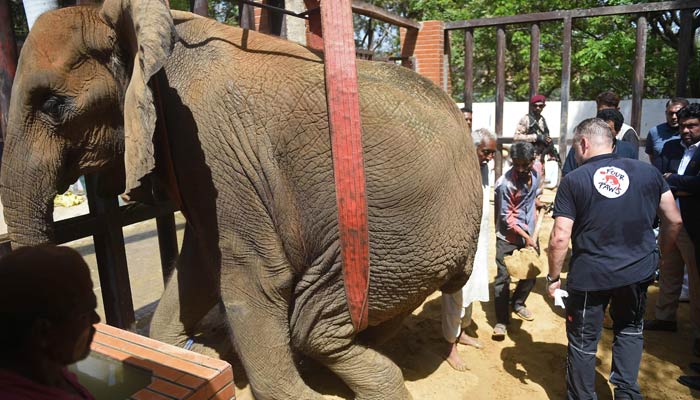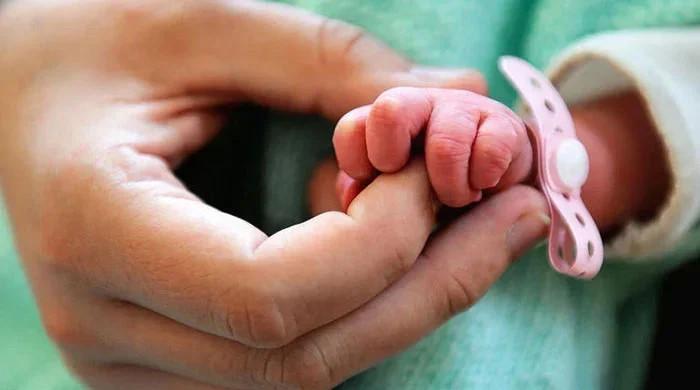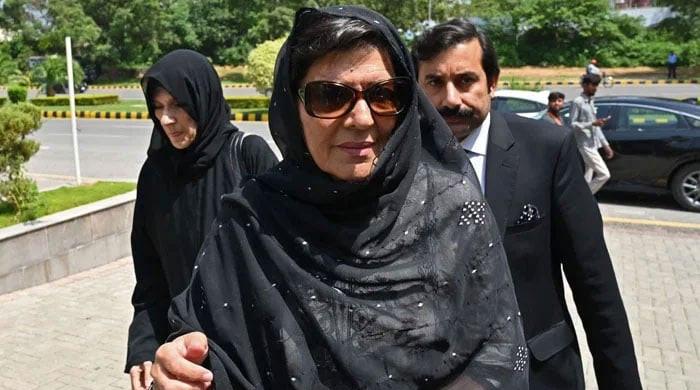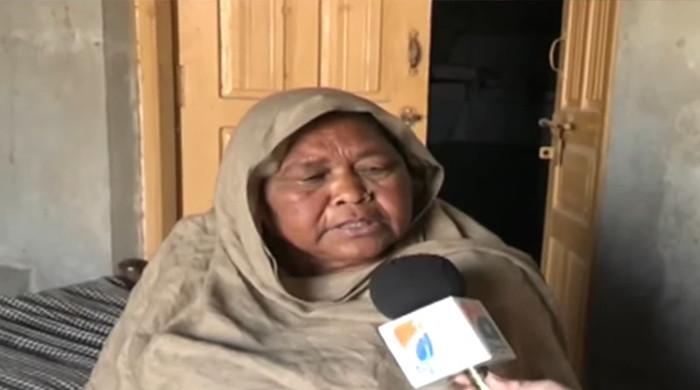Rehabilitation possible for 'Noor Jehan', experts say
Expert vet team from Four Paws successfully treats suffering elephant at Karachi Zoo
April 06, 2023

KARACHI: A team of veterinarians and wildlife experts from Four Paws — a global animal welfare organisation — has reached Karachi this week to aid 17-year-old suffering elephant Noor Jehan at the metropolis’s zoo.
During the examination, the experts identified an internal hematoma and a damaged pelvic floor as the main sources of her pain and physical distress. They provided immediate pain relief treatments and further recommendations for Noor Jehan’s rehabilitation.
The experts have recommended that Noor Jehan and her companion Madhubala be relocated to a species-appropriate place that fulfils international standards since 2021
Now the authorities have finally committed to relocating both elephants as soon as Noor Jehan is healthy enough to be moved.
Noor Jehan’s suffering began with limping and deteriorated quickly to a worrying condition that left her partially paralysed.
Following outrage from civil society, Noor Jehan’s deteriorating condition came into the foreground. Eventually, experts from Four Paws were called by the zoo officials as the treatment and special equipment needed to treat Noor Jehan were not available in Pakistan.
The medical procedures to determine Noor Jehan’s condition and further treatment included an ultrasound examination and additional laboratory tests.
To provide immediate relief for the suffering elephant, the team applied medications, vitamins, painkillers, and hydrotherapy, after identifying the cause of her serious condition.
Four paws veterinarian Dr Amir Khalil — who led the expert team on-site — said: “During the ultrasound examination we detected an inner hematoma and a damaged pelvic floor. This shows that trauma must have happened, which has caused her current painful health condition, and also explains her unusual body position. Noor Jehan needs a lot of movement to activate and train the muscles in her legs again, which will also improve the mobility of her digestive tract. She will also receive a special diet to help with this.
“It is now more important than ever that Noor Jehan regains strength, so she and her companion Madhubala can soon be relocated to a more species-appropriate home, where she can recover further.”
Khalil further said that they had given the zoo authorities the recommendations and guidelines for Noor Jehan’s recovery.
“However, her future and survival now depend on the zoo following them,” he said.
‘Chance at a better life’
Four Paws Global CEO Josef Pfabigan said that while they had suggested that Noor Jehan be moved earlier — which would have spared Noor Jehan her recent suffering — they were glad that she had a chance at a better life.
The organisation pledged to continue providing support in cases where sustainable solutions can be achieved to help improve the lives of as many animals as possible.
It is pertinent to mention here that while Noor Jehan and Mabhubala live at Karachi Zoo, the two other captive African elephants in Pakistan — Sonu and Malika — live at Karachi Safari Park.
All four were captured in the wild and brought to Pakistan together in 2009. Species-appropriate living conditions for elephants include big open spaces with natural surroundings and soft ground where the animals can move around. Elephants enjoy taking mud baths, for this they need sand and water to engage with.











